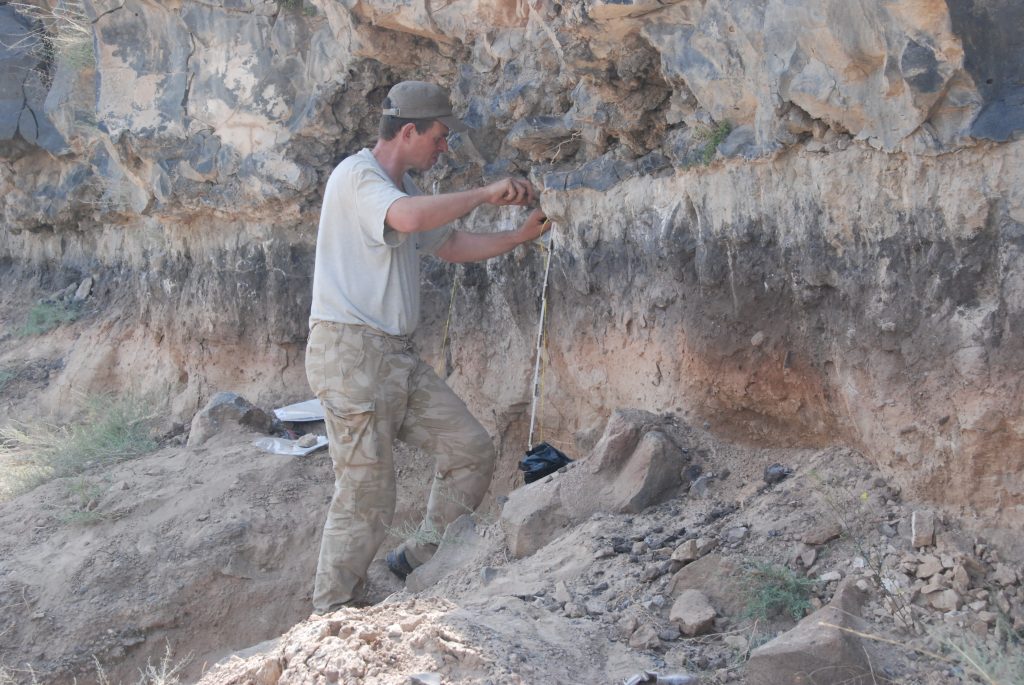
The first PAGE(S): initiation of Pleistocene Archaeology, Geochronology and Environments of the Southern Caucasus
The £387,792 grant for the Pleistocene Archaeology, Geochronology and Environments of the Southern Caucasus (PAGES) project comes from the Leverhulme Trust – the value of the award is in recognition of the considerable scientific potential of the research.
Dr Wilkinson, Reader in Environmental Archaeology at the University of Winchester, states: “The Southern Caucasus was selected for study as it is the region where the earliest human fossils have been found outside Africa, as well as having the earliest evidence for advanced stone tool-making behaviours. PAGES therefore seeks to understand when and why humans expanded from Africa into Europe and Asia.
“By carrying out the study, the project will enable Old Stone Age (Palaeolithic) archaeological sites to be correlated across the region, allow existing theories of population expansion during the Pleistocene geological epoch (2.5 million to 11.5 thousand year ago), and examine how early humans adapted to ecological changes and developed new technologies along the way.”
The project team comprises scientists from Royal Holloway, University of London; Armenian Academy of Sciences; the Universities of Connecticut, Glasgow, North Carolina (Greensboro); and the Senckenberg research institute.
Members of the team will carry out fieldwork in the valleys of the Hrazdan and Debed rivers of central and northern Armenia during 2016 and 2017, while the samples collected will be analysed in laboratories in Winchester, Royal Holloway and the Scottish Universities Environmental Research Centre at the University of Glasgow.
“The Debed and Hrazdan were chosen for study as we have previously found well-preserved Palaeolithic sites associated with former floodplains of these rivers,” explained Dr Wilkinson. “Furthermore we can accurately date the solidified lavas and volcanic ash that sandwich the river sediments and thereby provide the first precise regional chronology for early human occupation of this key part of Eurasia.”
The PAGES project commences in mid-July, while the publication of initial results will follow in 2017. For more information on the project, visit here
The Leverhulme Trust awards £80m in grants each year. The Trust aims to support original research that advances world knowledge in the fields of the arts, humanities, sciences and social sciences.
Click the following for: Press Release, Project Blog, Project Website